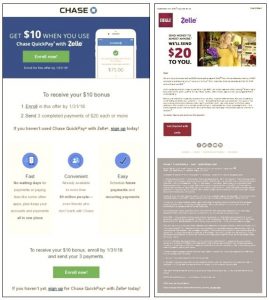
Not hearing back from job applications can be extremely frustrating, especially when you know you are more than qualified for the role.
But remember, recruiters are busy people, and therefore, they focus their efforts on replying to those applicants that are advancing to the next stage of the hiring process, not those who aren’t.
However frustrating this may be, there is some good news. You don’t have to agonize over your application and why you didn’t get a reply—you just have to make positive changes.
How do you go about doing this? You can start by checking out these five common reasons job hunters don’t get a response from recruiters to help you determine if you’re making the same mistakes.
You didn’t do your research
You might think that you wrote a professional and persuasive application, but if you didn’t thoroughly research the job and company beforehand, you might have let yourself down.
Researching the role you’re applying to is one of the best ways to stand out from other candidates and show you’re suitable and passionate about the job.
It helps you to better understand the company’s mission and values and what they look for in their employees. This can give you the upper hand when crafting your résumé and cover letter, allowing you to express a genuine interest in their company and role.
Your résumé design is overcomplicated
You’ve heard that famous saying, less is more, and the same applies to your résumé design and layout too.
If you’ve chosen an overcomplicated design, even one that you think looks modern and unique; your résumé might have found itself instantly landing on the rejection pile.
After all, recruiters don’t have the time or patience to search your résumé for clues as to whether you’re a good fit for the job or not.
So, when it comes to your résumé format, it’s best to stick with something clean and simple, making it much easier for recruiters to skim through and quickly understand who you are and what skills and experience you possess.
Your résumé is focused on responsibilities instead of results
The sole purpose of your résumé is to show the employer your unique value and why you’re the best choice for the position. But if your primary focus has been on listing your previous work duties rather than showcasing your professional skill set, this could be exactly why your application was ignored.
Merely listing your responsibilities says nothing about how well you’ve actually performed in the past and can ring hollow with recruiters, whereas showcasing your achievements and end results offers evidence of how you’ve added value to past roles and shows what you are capable of.
So rather the simply listing your past responsibilities, use the whole of your résumé to highlight your most impressive and relevant achievements.
You didn’t write a tailored cover note
Unless a job application specifically states that no cover letter should be attached, it’s always a good idea to include one. That being said, if you included a cover letter that was not tailored to the company or role, you might have cost yourself the interview.
Your cover letter needs to expand on your résumé and highlight the key reasons you believe you are a good fit for the role and the company.
It’s also worth noting that recruiters can spot a generic cover letter from a mile away, and it can make your application look lazy and unprofessional.
So when creating your application, be sure to put your research to good use and craft a specific and customized cover letter that is tailored to their organization.
You didn’t follow up with the recruiter
Last but not least, if you neglected to follow up on your application, this could be another reason you didn’t hear back about the job.
Remember, depending on the position you’re applying for, recruiters could be dealing with hundreds of applications. This means that, unfortunately, your application could slip through the cracks.
However, if you follow up with an email, this shows how keen you are and might be the push the recruiter needs to look over or search out your application again.
Not only this but following up shows that you are passionate about the role and that you genuinely want to work for their company. This can boost your chances of getting invited in for an interview.
If you’ve found yourself in a pattern of applying for jobs but never hearing back about the application, it’s time to break the cycle.
If any of these common mistakes sound familiar, it’s a good idea to revisit your résumé and cover letter, and for those roles that you are truly interested in, always remember to follow up on your application in a timely manner.
(36)
Report Post







